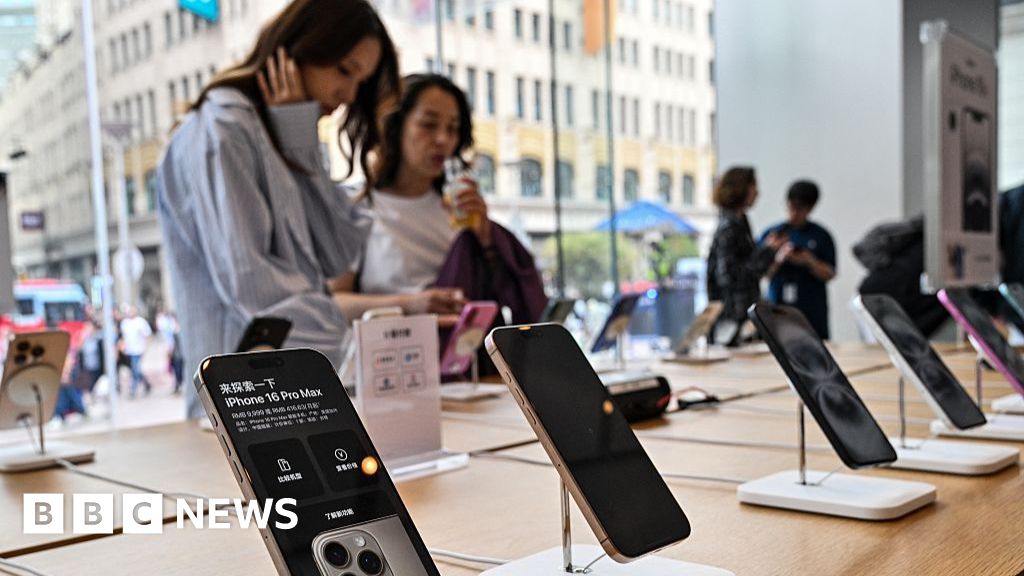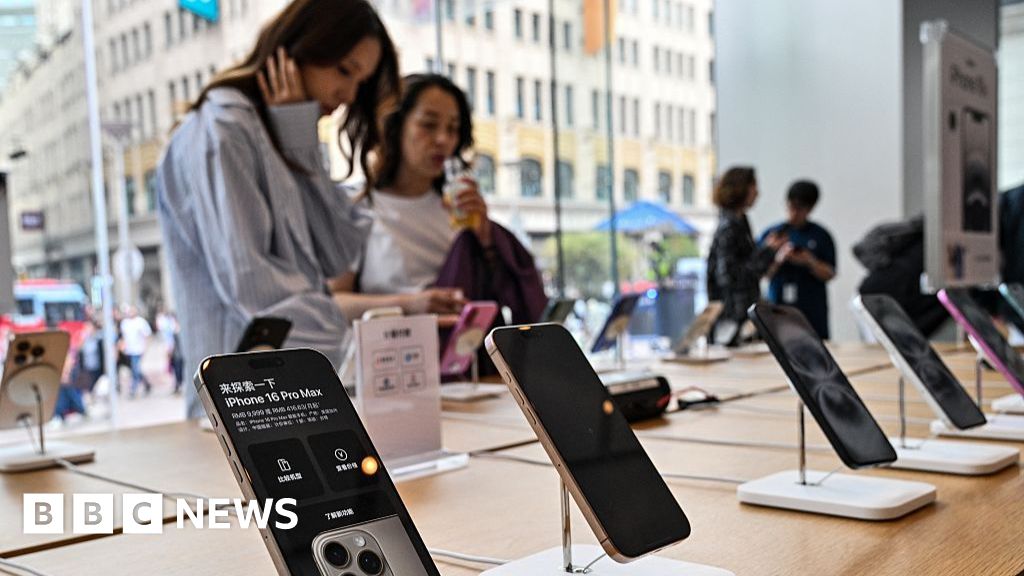
Chinese officials are calling on US President Donald Trump to “completely cancel” his so-called reciprocal tariffs, as a trade war between the world’s two biggest economies grinds on.
This week, Trump announced a 90-day pause on a host of global tariffs he had planned, but increased levies on Chinese imports to 145%.
“We urge the US to take a big step to correct its mistakes, completely cancel the wrong practice of ‘reciprocal tariffs’ and return to the right path of mutual respect,” China’s commerce ministry said in a statement.
The Trump administration seemed ready to offer a concession on Friday by announcing that some electronic products – including those produced in China – would be exempt.
But US Commerce Secretary Howard Lutnick told ABC News on Sunday that such exemptions would only be temporary.
He said the administration planned to impose such levies in a separate “semiconductor tariff”, which he said would be announced at a later date.
“We need to have these things made in America,” Lutnick said.
President Trump chimed in on social media, saying there was no exemption for these products and called such reports false. Instead, he said that “they are just moving to a different Tariff ‘bucket'”.
Trump added: “We are taking a look at Semiconductors and the WHOLE ELECTRONICS SUPPLY CHAIN in the upcoming National Security Tariff Investigations.”
The comments inject uncertainty into the just-announced tariff exemptions for technology products such as smartphones, computers and semiconductors.
The Chinese commerce ministry had called the exemptions a “small step” by the US, and said that Beijing was “evaluating the impact” of the move.
But the suggestion by Trump administration officials of plans for future levies may dampen hopes of a thaw in the two rivals’ protectionist posture.
US Trade Representative Jamieson Greer was asked on Sunday whether there were any plans for Trump to speak with his Chinese counterpart, Xi Jinping.
“Right now we don’t have any plans on that,” he said during an appearance on CBS’s Face the Nation.
Trump imposed a tariff amounting to 54% on imports of products from China at the beginning of April, before escalating to the current 145% rate.
In its own tit-for-tat tariffs, China imposed levies of 34% on US goods, before increasing it to 84% and then 125%, which took effect on Saturday.
In announcing its latest tariffs, China’s commerce ministry said last week that it would “fight to the end” if the US “insists on provoking a tariff war or trade war”.
Late on Saturday, while travelling to Miami, Florida, Trump said he would give more details of the exemptions at the start of next week.
The White House has argued that it is using tariffs as a negotiating tactic to extract more favourable trade terms from other countries.
Trump has said his policy will redress unfairness in the global trading system, as well as bring jobs and factories back to the US.
However, his interventions have seen massive fluctuations in the stock market and raised fears of a decrease in global trade that could have a knock-on effect on jobs and individual economies.



